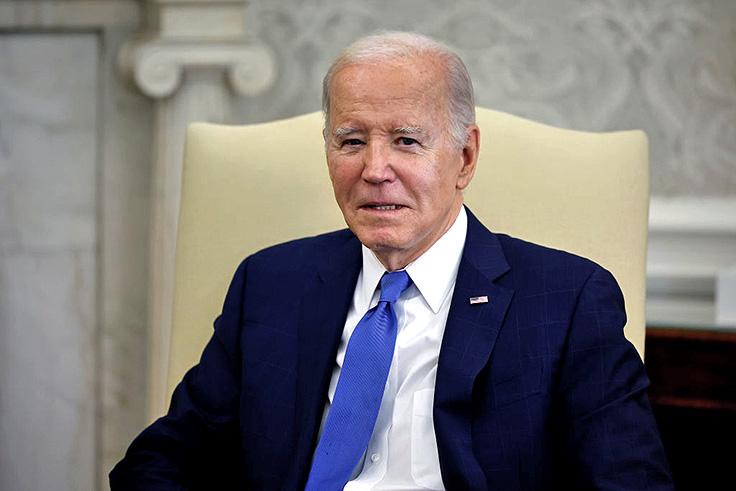The Biden administration’s recently announced sanctions on the Iran-backed Houthi rebels will include a carveout that permits the terror group to engage in lucrative energy and fuel-related transactions with Americans, a decision that congressional critics say effectively neuters the sanctions.
A license issued by the Treasury Department and circulated to Congress this week authorizes "transactions related to refined petroleum products in Yemen involving Ansarallah," otherwise known as the Houthi militant group. This includes authorization for the "sale of refined petroleum products for personal, commercial, or humanitarian use in Yemen."
The decision to grant this carveout is already attracting congressional concerns, with GOP lawmakers telling the Washington Free Beacon they have begun pushing the House Oversight and Foreign Affairs Committees to investigate the license, which they say undermines sanctions that are intended to choke off the terror group’s resources.
The sanctions on the Houthis, which will go into effect next month, have already drawn fierce pushback from Republican officials for being issued under a weaker federal statute that does not criminalize support for the terrorist group or force banks to seize their assets, the Free Beacon reported on Wednesday. An additional license authorizing critical energy deals with the Houthis further undermines sanctions that are meant to deter the terror group from its attacks on American military forces and Western commercial ships, critics say.
"There’s absolutely no reason for the Houthis to be able to engage in energy-related transactions with American citizens," Rep. Joe Wilson (R., S.C.), a member of the House Foreign Affairs Committee, told the Free Beacon. "These so-called sanctions are pathetic. Biden needs to fully sanction the Houthis and designate them as a foreign terrorist organization immediately and reverse this weak foreign policy." Wilson also serves as national security task force chair of the Republican Study Committee, Congress’s largest GOP caucus, which is helming efforts to investigate the license.
While humanitarian exemptions to sanctions are commonplace, and used to ensure civilians in war torn countries are not adversely impacted, sources who spoke to the Free Beacon said that energy-based transactions with the Houthis are not relevant to the delivery of aid inside Yemen.
One senior GOP congressional source familiar with the matter said it is "puzzling" that a "broad license" allowing these types of transactions with the terror group is being issued. The source speculated it is possible the Biden administration may be doing this "as a message to Iran" signaling it is not serious about the sanctions and wants to keep diplomatic channels open.
Rep. Kevin Hern (R., Okla.), the RSC’s chair, said his coalition of Republican lawmakers will immediately begin pushing for oversight on the license in a bid to determine why the Biden administration provided the exemption.
"This is yet another example of the president’s dangerous incompetence—why in the world would we allow energy and fuel transactions with a terrorist organization that is attacking Americans and shutting down global shipping routes?" Hern told the Free Beacon. "The world is a much more dangerous place since President Biden entered the White House. It’s not a coincidence—Biden is projecting American weakness on the world stage."
The Houthi sanctions designation has faced a wave of blowback from Republican senators for being far short of the tough measures imposed on the group by the Trump administration.
The White House announced late Tuesday that it will be placing the Houthis on the Specially Designated Global Terrorist (SDGT) list, which applies a range of new sanctions on the group.
But this designation is weaker than the one applied by former president Donald Trump, who labeled the Houthis as a Foreign Terrorist Organization (FTO)—a more stringent classification that criminalized all support for the militant group and forced U.S. banks to seize the group's funds. Upon entering office in 2021, the Biden administration removed the Houthis from the FTO list as a gesture of good will toward Iran as it pursued diplomacy with the hardline regime.
